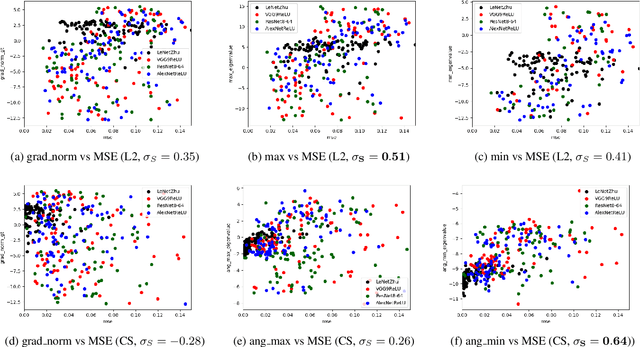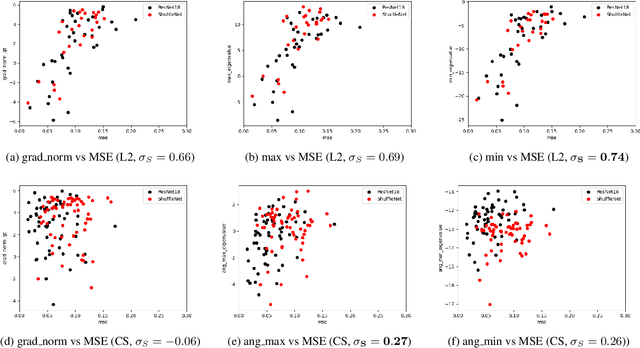Foreseeing Reconstruction Quality of Gradient Inversion: An Optimization Perspective
Paper and Code
Dec 19, 2023



Gradient inversion attacks can leak data privacy when clients share weight updates with the server in federated learning (FL). Existing studies mainly use L2 or cosine distance as the loss function for gradient matching in the attack. Our empirical investigation shows that the vulnerability ranking varies with the loss function used. Gradient norm, which is commonly used as a vulnerability proxy for gradient inversion attack, cannot explain this as it remains constant regardless of the loss function for gradient matching. In this paper, we propose a loss-aware vulnerability proxy (LAVP) for the first time. LAVP refers to either the maximum or minimum eigenvalue of the Hessian with respect to gradient matching loss at ground truth. This suggestion is based on our theoretical findings regarding the local optimization of the gradient inversion in proximity to the ground truth, which corresponds to the worst case attack scenario. We demonstrate the effectiveness of LAVP on various architectures and datasets, showing its consistent superiority over the gradient norm in capturing sample vulnerabilities. The performance of each proxy is measured in terms of Spearman's rank correlation with respect to several similarity scores. This work will contribute to enhancing FL security against any potential loss functions beyond L2 or cosine distance in the future.
 Add to Chrome
Add to Chrome Add to Firefox
Add to Firefox Add to Edge
Add to Edge